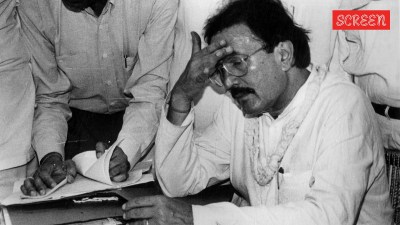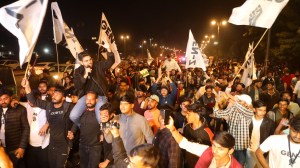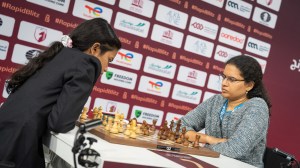Mugabe negotiating possible exit
The opposition leader Morgan Tsvangirai is in talks with advisers to President Robert G. Mugabe of Zimbabwe...

The opposition leader Morgan Tsvangirai is in talks with advisers to President Robert G. Mugabe of Zimbabwe, amid signs that some of those close to Mr. Mugabe may encourage him to resign, a Western diplomat and a prominent Zimbabwe political analyst said Tuesday. The negotiations about a possible transfer of power away from Mr. Mugabe began after he apparently concluded that a runoff election would be demeaning, a diplomat said.
A resignation by Mugabe, one of Africa8217;s longest serving leaders, would be a stunning turnabout in a country where Mugabe has been accused of consistently manipulating election results to maintain his lock on power.
There is no guarantee the negotiations will succeed and the situation could still unravel. But a Western diplomat and a political analyst said the Opposition was negotiating with Zimbabwe8217;s military, central intelligence organisation and the country8217;s prisons chief.
8220;The chiefs of staff are talking to Morgan and are trying to put into place transitional structures,8221; said John Makumbe, a political analyst and insider in local politics who has spoken in the past in favor of the opposition. A spokesman for Tsvangirai, George Sibotshiwe, said: 8220;I don8217;t know anything about such meetings.8221;
Tsvangirai scheduled a news conference for 5 pm local time.
The diplomats said the joint chiefs had urged the negotiations after becoming convinced that there was no palatable alternative to a transfer of power and that a run-off following Saturday8217;s presidential election would lead to defeat for Mugabe. One Western diplomat said the heads of the armed forces advised Mugabe on Monday to engineer a second round run-off in the presidential race but Mugabe responded that a run-off would be a humiliation to him.
More than three days after the vote, the government had still not released any results of the presidential balloting. Under Zimbabwe8217;s election rules, a runoff would be required if no candidate got more than 50 percent. However, Reuters quoted unidentified sources in Mugabe8217;s party as saying it had projected Tsvangirai got 48 per cent of the vote, vs 43 per cent for Mugabe.
The nation has lingered in political limbo since Saturday, because of the election commission8217;s silence on the results of the presidential race, raising concerns that Mugabe was intent on rigging the outcome.
But with the talks now underway, the political ground seemed to be shifting rapidly, away from Mugabe.
Mugabe, 84, has led Zimbabwe for 28 years since 1980. Crafty and ruthless, he is not a man likely to easily give up his hold on power, analysts, diplomats and Zimbabweans have long contended.
That has left this nation, and a good bit of the world, wondering how he will survive what seems a repudiation by his countrymen, most of whom have become unemployed under his rule. The nation now suffers from an inflation rate of 100,000 per cent.
Tsvangirai8217;s party, the Movement for Democratic Change, had already used the few parliamentary results posted so far to declare victory.
Tendai Biti, the party8217;s secretary general, said Monday that unofficial tallies of more than half the votes showed Tsvangirai with 60 per cent and Mugabe with 30 per cent.
8220;We are at the moment of liberation from a dictator,8221; Biti said. However, the government had warned the opposition about declaring victory prematurely,8221; says Chris Maroleng, a Zimbabwe expert at the Institute for Strategic Studies in Tshwane, as Pretoria, South Africa, is now called. Maroleng was an election observer during Saturday8217;s vote.
This could work to the opposition8217;s favor by turning up the heat and causing ZANU-PF to think twice about stealing the election, as they have done in the past. But it could also be quite dangerous if the military cracks down on Opposition supporters in the streets.
His Journey
8226;1980: Becomes prime minister of Zimbabwe after elections following its independence from Ian Smith-led white regime. His Zimbabwe African National Union party wins majority.
8226;1982-85: Crushes armed resistence of Ndbele tribals who support Mugabe8217;s rival party, ZAPU, killing more than 20,000
8226;1987: Changes constitution to become executive President in 1987
8226;1990, 1996, 2002: Re-elected President. In 2002, he defeats Morgan Tsvangirai 56 per cent to 42, but there are allegations of large-scale rigging. After polls Tsvangirai is charged with treason and jailed.
8226;2002: The US and EU impose ban on Mugabe travelling in their countries.
8226;2008: Economy crumbles in once resource-rich Zimbabwe. Inflation at 150,000 per cent according to IMF estimates.
- 01
- 02
- 03
- 04
- 05































